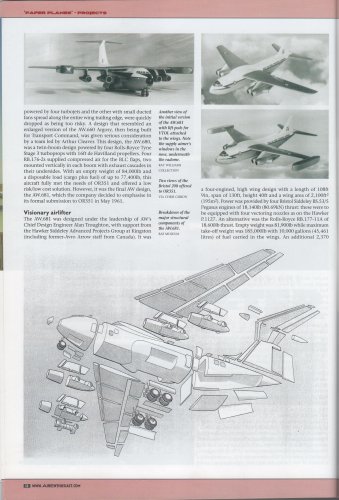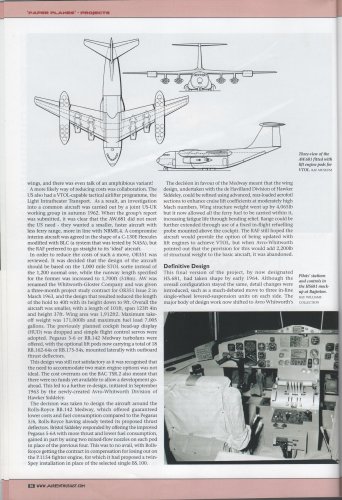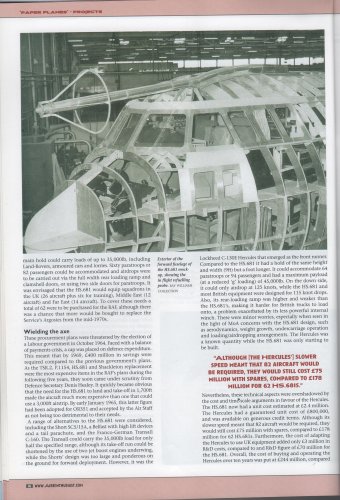- Joined
- 21 December 2006
- Messages
- 1,147
- Reaction score
- 740
Today is the 50th anniverary of the cancellation of the P1154 and HS681, and of the go-ahead for what became the Harrier and the Nimrod:
http://hansard.millbanksystems.com/commons/1965/feb/02/actions-of-her-majestys-government
Happily, my P1154 history article has been restored after the ISP had the website down for six weeks:
http://www.harrier.org.uk/history/history_p1154.htm
Attached are excerpts from my old HS681 article.
It is interesting that fifty years on supersonic joint-service V/STOL aircraft and tactical transports for East of Suez are in or near RAF service again, as well as new carriers. Plus ca change...!
http://hansard.millbanksystems.com/commons/1965/feb/02/actions-of-her-majestys-government
Happily, my P1154 history article has been restored after the ISP had the website down for six weeks:
http://www.harrier.org.uk/history/history_p1154.htm
Attached are excerpts from my old HS681 article.
It is interesting that fifty years on supersonic joint-service V/STOL aircraft and tactical transports for East of Suez are in or near RAF service again, as well as new carriers. Plus ca change...!



